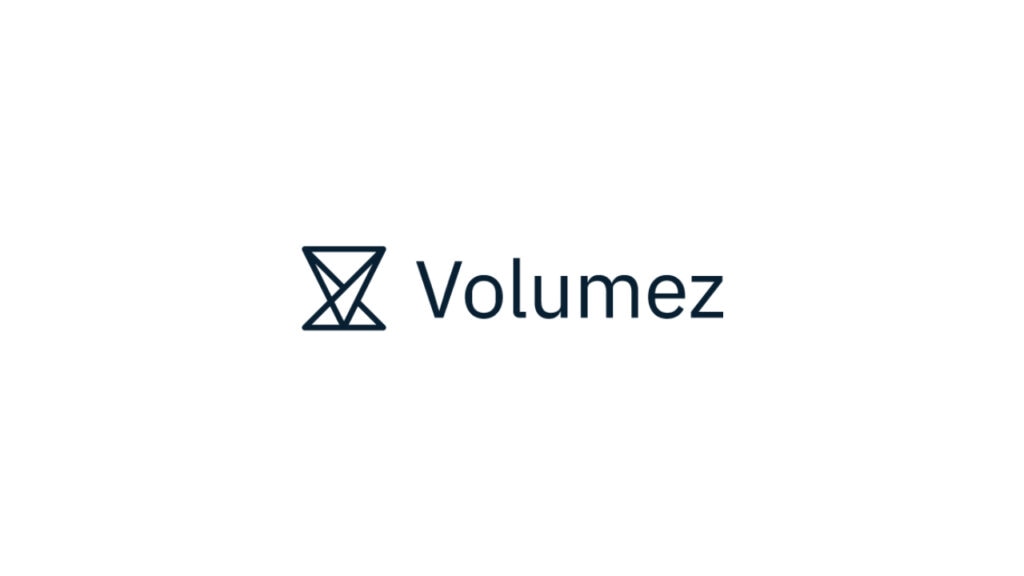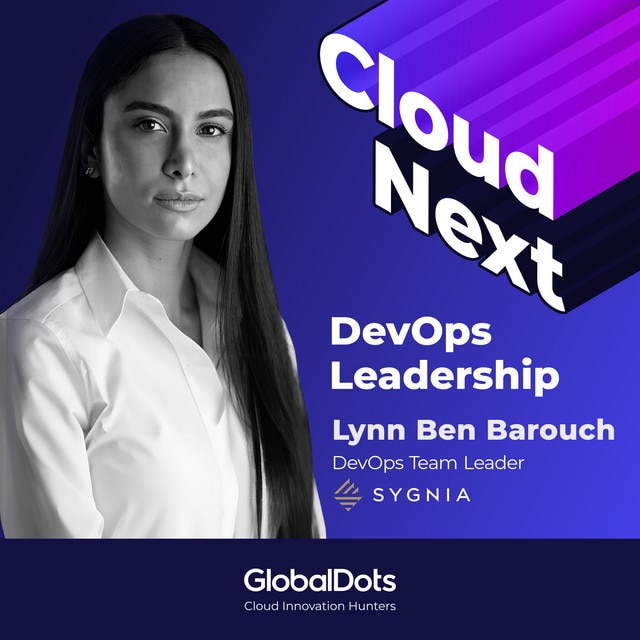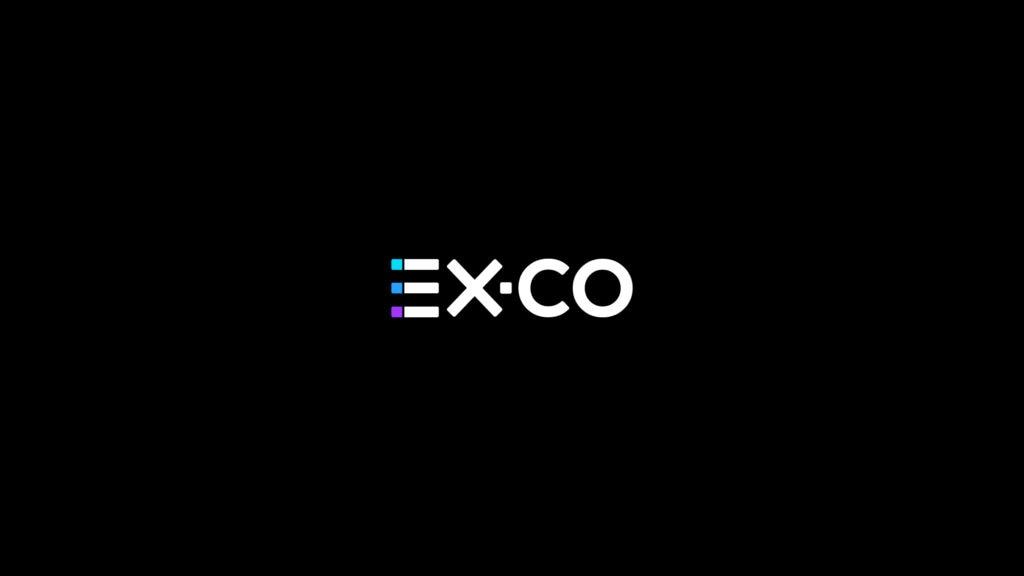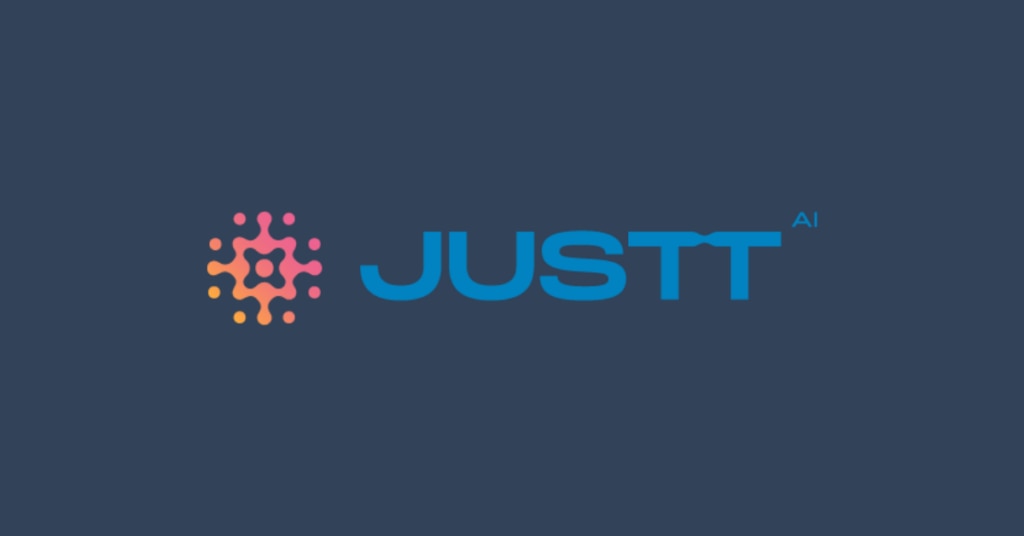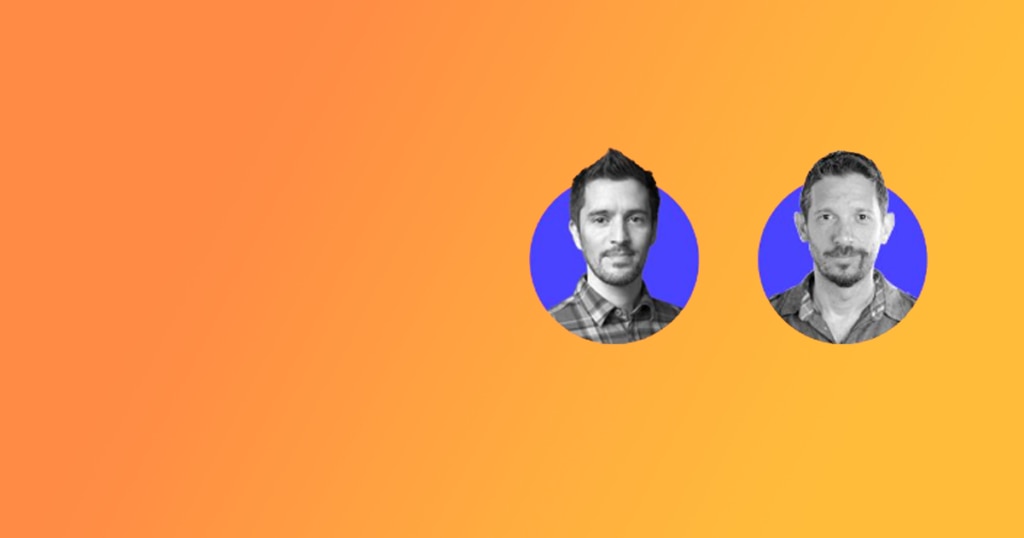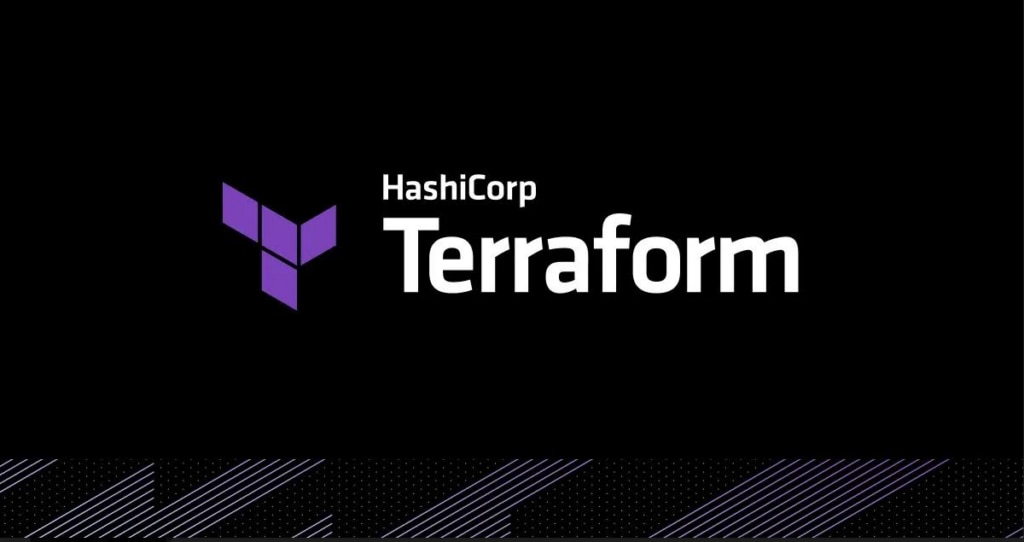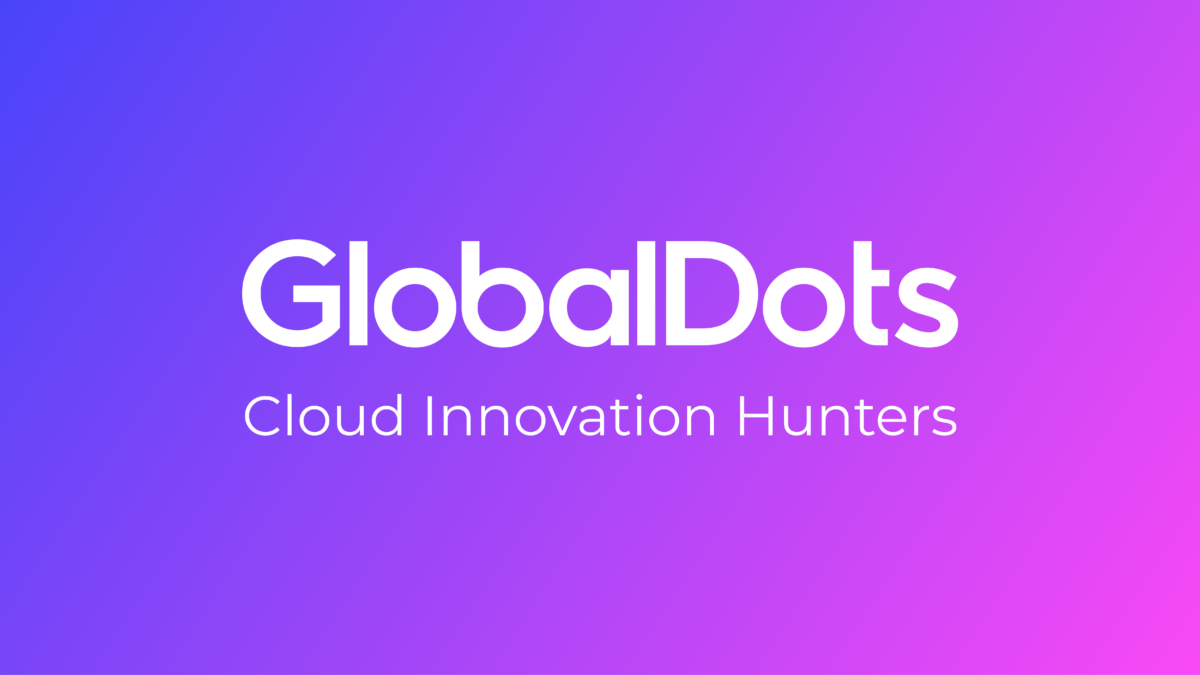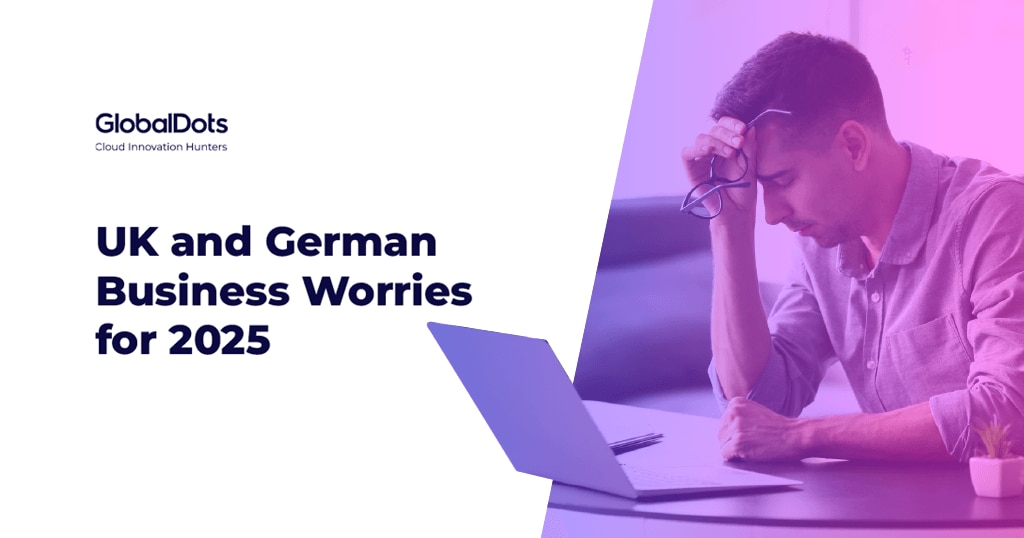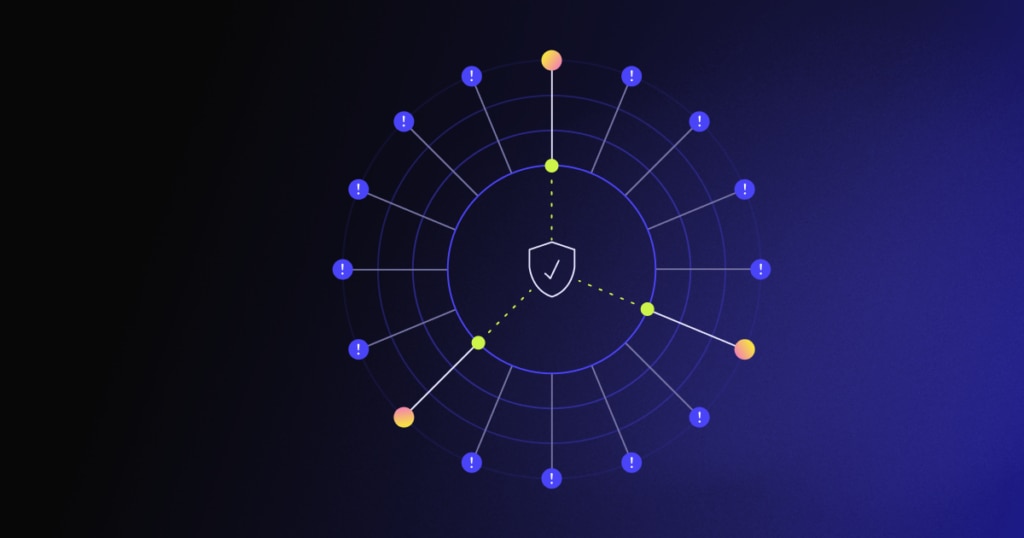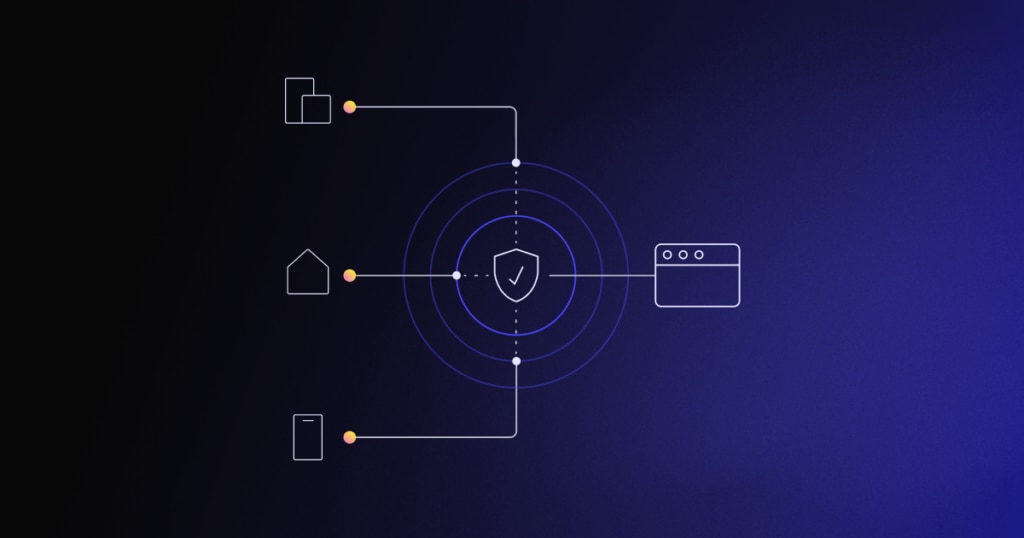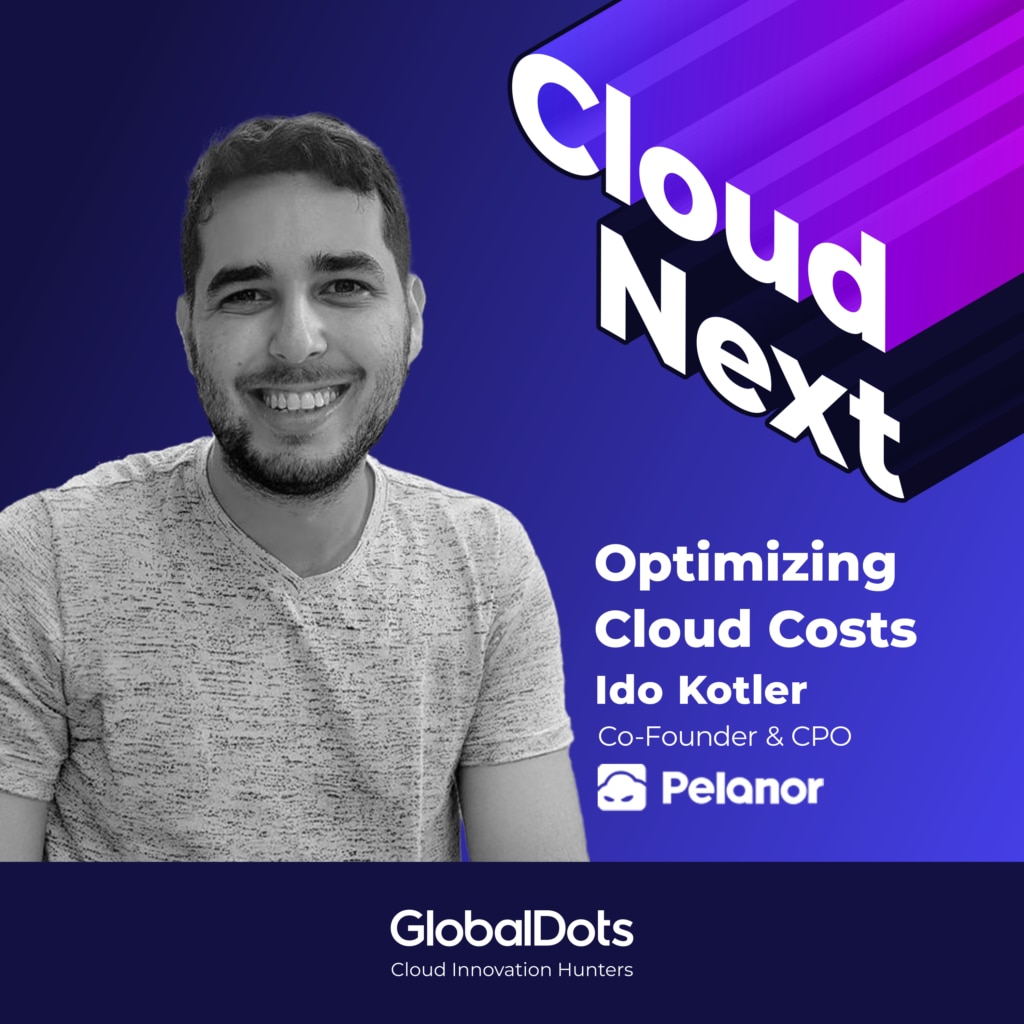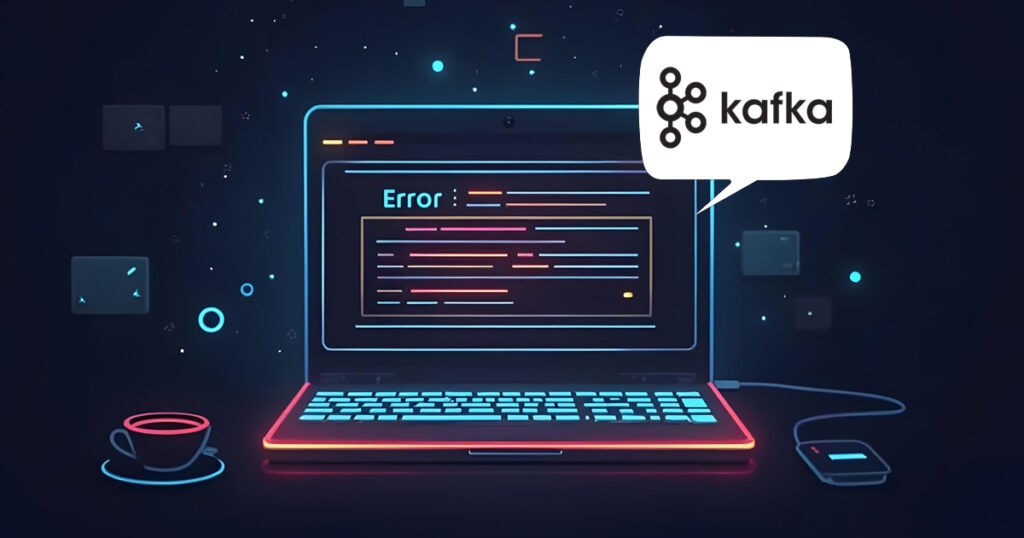This transcript was generated automatically by AI. If you find any mistakes, please email us.
[00:00:00] Announcer: Hello, everyone. You're listening to Cloud Next, your go-to source for cloud innovation and leaders inside. Brought to you by GlobalDots.
[00:00:15] Ganesh: If you're an ISV, your head is spinning when you need to ensure seamless integration [00:00:20] and interoperability between various cloud services. If you're a client, you need the flexibility to scale operations quickly without sacrificing performance or security. Both face the common challenge of navigating a rapidly evolving cloud landscape.
[00:00:34] While optimizing resources and maintaining compliance in walks, the savior cloud [00:00:40] partnerships by collaborating with expert partners. Organizations can tackle these pain points, integrating solutions, enhancing security, and optimizing resources. I'm going to see awesome. And joining me today is it. I've been to all VP of corporate development at cast AI.
[00:00:55] He's here to talk about the critical role of cloud partnerships in addressing these challenges and driving [00:01:00] success in the cloud industry. It's I, before we start. What should people know about you?
[00:01:04] Itay: Um, hello, Ganesh. So first of all, happy to be here. Thank you for, for having me. Uh, always happy to spend some time with you and chat tech.
[00:01:12] I think that the most interesting piece is that I'm not a techie. I've been working in this industry for about 10 years or so. Uh, out of those about seven in [00:01:20] partnerships. And, um, I'm not coming from tech background, but I keep getting drawn to this intersection between technology and innovation on one side and sales.
[00:01:30] So it has to be something that results with a, with a clear result. And on the other hand, the longer play, the business development, the partnership side, um, cause I find it [00:01:40] very interesting to, to build these relationships. And this is how I came from basically. Learning, uh, uh, politics, diplomacy, political science to, uh, selling DevOps solutions and technology.
[00:01:53] So, uh, this is kind of my background apart from that, uh, focus, um, a lot of my time on, on [00:02:00] family and my kids, my wife. Um, so, so that's pretty cool that I'm able to balance a fast moving tech, um, uh, career with, with some family life.
[00:02:08] Ganesh: That's great. I, and you know what? Uh, the, the amount of politics that is in partnerships, I actually, it's a, it's almost seems perverse, but that does [00:02:20] seem to give you a very good background for those kinds of roles.
[00:02:24] Um, we mentioned before about cloud partnerships and how they're growing. Could you give us an overview of how cloud industry has evolved in recent years, uh, and, and what changes have, have created to need dedicated partnership management roles? [00:02:40]
[00:02:40] Itay: Um, I think that as, as technology evolves, um, it's not getting less complicated, right?
[00:02:48] There is more specification, uh, there are more, more, uh, complexity and more specific areas where each party in the game has to be, uh, very, very, very strong [00:03:00] at. Um, so cloud, for example, opens the world for, for innovation, for doing stuff that were simply impossible, uh, years ago, you can just. Go into AWS and speed up an instance and build your app from wherever you want in the world.
[00:03:13] It's amazing. But then again, once you start growing, you need to know security. You need to know cost. [00:03:20] You need to know hundreds of different abilities within the cloud. And I think that customers today understand that they need to focus on building their own solution, focus on their own customers, uh, the cloud providers, which are the, these big.
[00:03:36] Sun spheres, we all evolve around. They [00:03:40] are not able to give that end point solution for each customer with their specific needs. And here come partnerships, right? Uh, that is us. It's the ISV, the independent software vendor, uh, like cast, like, uh, like many other companies in the world that help with a specific space where we are excellent at.
[00:03:58] And companies like global [00:04:00] dots, like, like you guys that are, um, are there to provide the best possible stack of solutions plus services consulting into those companies, um, into those. Uh, uh, companies evolving in the cloud. And I think that this understanding that cloud is, and technology is getting more and more complicated and companies need to focus in their own [00:04:20] competitive landscape opens the door for building partnerships that serve customers in the best possible way.
[00:04:25] Ganesh: Yeah. I, I totally hear you on that. And we're obviously weak. We, we're in this game for quite a long time, the pair of us, and we know each other from, um, well, definitely sort of different lives where we see these tech companies grow from startups [00:04:40] into enormous, um, enormous giants that get bought by the likes of Intel and NetApp and these kinds of things.
[00:04:47] And the, those journeys are incredibly tricky. It's interesting that I, I see a repeat as well of old. Old, um, habits repeating [00:05:00] themselves in a new tech world. And that's, you know, there's, there was a famous story years ago about Ford motor cars, and they used to do all of their accounting in house. And they were one of the first people to outsource all of their accounting.
[00:05:14] They were like, we're not an accounting company, basically. So why are we doing accounting? And they [00:05:20] outsourced it, their whole accounting department to someone else. And that was seen as sort of like very cavalier or crazy at the time. Um, but actually they were like, it's not our core business. You know, our core business is doing something else.
[00:05:31] So we should focus on that. And I see that echoing in tech now, you know, uh, there's so, so many, you know, you, you, but [00:05:40] AWS, you mentioned, I don't think anybody can know AWS now.
[00:05:44] Itay: I think it's too big, basically. Oh, it's, it's, it's crazy. You know, we, um, so at Cast. ai, we, uh, automate Kubernetes infrastructure and save customers over 50 percent of their costs.
[00:05:55] Right. Um, and a lot of DevOps people, they like doing these things on their [00:06:00] own, uh, the entire open source world. And, and it's great. Every time someone tells me, Oh, yeah, I'm, you know, I'm doing, I'm doing this all on my own. I have this open source tool and I've developed that in this script and that's great.
[00:06:11] Uh, and I think there's always room for people to be proficient at what they do and doing a great job there. And there was, will always be room for these ISVs or, or [00:06:20] subject matter expert startups or consultancies to take you from where you are all the way up to, to being 100 percent great. Right. And, and then again, leaving a lot of time for you to be proficient at your core job and do better at the core of what you're doing.
[00:06:34] Um, so. So, yeah, it's a, it's always gonna be a, a, a struggle between these two things, [00:06:40] right? When companies trying to do more and more and more, but then needing to focus on, on what they actually need to deliver.
[00:06:45] Ganesh: It's a, it's a certain kind of, I, I, I respect that person quite a lot, who builds things on by themselves and they, they do everything and they wanna own,
[00:06:52] Itay: I know they
[00:06:52] Ganesh: do, and all these people, uh, and it all power to them, but it's, uh, I, I, I used to hold a, a, a previous job [00:07:00] where we, we did a lot of that in-house to save money.
[00:07:03] Including things like, um, creating CDNs before CDNs existed. So we had this legacy thing that was basically a CDN that we'd built in house. Um, something that was essentially a bit like Kafka before Kafka existed. So you had all these things and eventually, you know, [00:07:20] a group of us had to come together and say, we need to stop building things like, you know.
[00:07:24] Um, we're not good software builders. We can see that because of all the problems is like, is that we need to be taking more things off the shelf, which is, um, yeah, it's a bit, a bit of pill for some techies to swallow. But I think we're at the point now, but yeah, it's, uh,
[00:07:39] Itay: I think it's [00:07:40] also a cultural thing.
[00:07:40] You know, I'm, um, I'm privileged to work on like a global environment, start my day with the Korea and Japan and end it with, uh, with San Francisco. Um, and you can see how the state of mind of. Techies and of companies is different between different places. I'm in Israel. Uh, a lot of people here like to do on their own, uh, and, and just build.
[00:07:59] [00:08:00] And then, then again, if you come with a technology solution, that's really innovative or does something better than they could build on their own. You get a lot of respect for, for getting that right answer. Then again, in the U S a lot of times you get companies just saying, Hey, this part. I'm outsourcing to someone else and that's just the state of mind and that's fine, right?
[00:08:19] Uh, so I [00:08:20] think that's also very interesting and, and how people view the core of what they're doing, uh, if they want to try and, and build everything on their own or, or like make or buy.
[00:08:30] Ganesh: Yeah. Make or buy. Definitely. That's a, it's, it's a linchpin. I also, there's, it's a very interesting and we'll, we'll fall off the rails as we talk about it too much, but [00:08:40] The cultural differences, you mentioned that between somewhere like Israel or America or mainland Europe, the, um, the, the, the risk averse or, or the, the, the willing to take a risk in Israel on an innovative solution.
[00:08:57] It seems to be so much higher than mainland Europe. And I, I [00:09:00] do a lot of work in Germany and I can tell you, they are The, you know, almost the polar opposite, you know, the, the most risk averse people. So it's, um, very interesting if you're a tech partner trying to introduce innovations around there and the, the different feedback you get from, from different countries.
[00:09:15] But, um, going back to partnerships, there are different kinds of cloud [00:09:20] partnerships, um, such as multi clients, resellers and cloud providers. Um, what unique challenges do each of these different types present?
[00:09:29] Itay: I think that you need to look at it from the eye of the partner. Um, so if I'm an ISV, I want to look at each partner and see what's their driver, what, what makes them tick when they wake up in the morning.
[00:09:39] [00:09:40] Um, and obviously a challenge of partnering with, um, a 10 people consultancy or a 2000 people consultancy or AWS, uh, is a whole different challenge and you need to go at it from a different view. Um, so from where I'm sitting, I think the most important thing is What drives the other [00:10:00] party? Because if I don't understand that, if I don't understand what's the person who's spending 30 minutes an hour with me from the partner's side, why are they doing it?
[00:10:11] What makes them successful? Then I won't be successful. And I think that, um, the different partnerships, they vary by that. Basically, you need [00:10:20] to understand what the other party wants. So AWS, they're huge. Microsoft, And, and also have their own complexities, right? With, with a traditional Microsoft business.
[00:10:28] So each, each party has their own story and each person within that partner has their own story. And I think that's, that's a key difference that, that needs to be, uh, identified. Um, [00:10:40] and, and. Maybe doubling down, doubling down on that, uh, where the collaboration, um, uh, or the, the fin circles kind of meet, uh, for the ISV and for the, uh, for the, the cloud provider and for the, the service partners where they can find the points where the motivations align.[00:11:00]
[00:11:00] So that is also very interesting. Although the sizes are different, the revenue is different, the drivers are business of business are different. If we can find those cross sections, that's where everyone went.
[00:11:10] Ganesh: It's, um, it's definitely an interesting tight rope to, to walk. And, um, and, and, you know, I know particularly in your role, and you've, you've done this with a [00:11:20] number of companies now, and you're, you really, you're familiar with it.
[00:11:24] Having to wear the different hats is definitely quite interesting. You know, the, the, the hat you wear when you talk to the giant that is AWS. It's a totally different hat that you wear when you talk to a very small partner who wants to help push you in [00:11:40] some small region, Thailand, Thailand or Vietnam or something.
[00:11:46] Itay: I actually had a role in a few companies back where I, we're a pretty big startup. So I was working with these giants, these telcos. And I was the small, you know, just asking for, Hey, some attention, let's work, let's find a [00:12:00] deal. And then I was also mentioning like a lot of smaller partners that were using my data and, and they were like, uh, looking up to us, Hey, can you help us with some?
[00:12:10] So it was really funny to be in the situation where one moment you're the giant and the other, you're looking up to the giants and gives you the perspective of, of partnerships. And
[00:12:18] Ganesh: yeah, it's, uh, [00:12:20] it's a tricky world to walk and you can, um, we, we. Our VP of sales has a mantra that's ABN, always be nice. And I think on the, in those journeys, it always.
[00:12:35] Always being nice to everybody because you never know who you're going to see in a different [00:12:40] world later on, you know, who, who's somebody who seems like you haven't got enough time for them or they're, you know, they're not, not worthy of your attention. And then the next thing you know, they have a multi billion dollar unicorn that you, you know, you're begging for food, bread from their table.
[00:12:55] It's like, yeah, it's, uh, knowing where to spend your time [00:13:00] effectively. is quite tricky. And, and in that world where you, you know, everybody knows you need to spend most of the time pleasing the big guys. How do you manage, uh, or how would you give advice about managing time, you know, keeping in mind that some of these, these, these smaller fish could turn into very large [00:13:20] whales?
[00:13:20] Itay: First of all, I don't like saying no, it's probably a mistake, but, um, I think that first of all, I think this partnership specifically the space we're going deep is way more important than going wide. And there's always a balance in our space. You go to the big events. There's so many partners, so much opportunity.
[00:13:37] You want to speak to everyone. And I, as I said, I don't like saying [00:13:40] no, I like to be nice and to, to chat with everyone, build these relationships. Then again, you have to focus. And I think that's so important to understand where you spend your time and it's about balances. It's about not shutting down opportunities and, and keeping just, uh, keeping nice.
[00:13:57] But then again, you have to focus, you have to understand where you, you [00:14:00] spend your time and money. Uh, we're in the business of growth. So, uh, I think I really relate to what you said earlier about, uh, building these long term relationships. We've been working together for, for a few cycles now. Um, I mean, I got introduced to my, my current role through a partner that said, Hey, met this company.
[00:14:16] They're, they're great. Uh, so I think these things are really, really [00:14:20] important. Uh, then again, we're in the business of growth and revenue, and this comes in. With folks, you can't just spread yourself thin and talk to a thousand different people that won't move. So I think that's an interesting balance.
[00:14:32] And I ask myself every day, am I focusing on the right thing?
[00:14:35] Ganesh: I think that's a, that is a super top tip. And [00:14:40] I'm also totally guilty of saying yes to way too many things and being super nice to many things. And I think also somewhere in the mix of there is being lucky. I know, um, I don't talk about it very often, but the, [00:15:00] uh, we have to analyze a lot of tech and see if we want to be partners of these solutions.
[00:15:06] Um, and sometimes things land and they're just immediately obvious. Like, okay, this is amazing. We, we want to partner with this straight away. Um, but it always kills me that the, you, you, you try to use that focus. Like you [00:15:20] said, and, uh, we, we, in the cloud security world, we were, we already had quite a few vendors in there.
[00:15:26] When Wiz landed on my desk, and they gave me a presentation, and at the time, um, I was a bit exhausted from looking at these CNAP tools and it really didn't seem to be any much different, to be honest. It had like a slightly slick [00:15:40] UI, but basically it didn't seem to be any, any more special than the other ones.
[00:15:43] So I said, listen, guys, we, we, we have too many in a portfolio already. Very nice. Let's, let's keep in contact in the background. Anyway, obviously now Wiz is like the super mega unicorn and we could have partnered very early on. And it sort of haunts me that, uh, these [00:16:00] things, but yeah, you have to, you have to, you have to pick focus.
[00:16:03] And I think you have to have a little bit of luck as well.
[00:16:06] Itay: Yeah. I hope you were nice to them though. And now you
[00:16:10] Ganesh: always be nice, but there's only, there's only so much time you can provide, but it always be nice. Um, in our prep talk, you talked about the power of three. [00:16:20] And that's ISVs and that's independent software vendors, um, resellers and cloud providers.
[00:16:27] Can you give us a bit more information on how this triad works and the benefits it brings to clients?
[00:16:32] Itay: Ah, for sure. So today, I mean, Every company is a software company and most of them are, are moving [00:16:40] up to the cloud, right? The cloud providers, this is their holy grail to bring up customers and, and help them grow in the crowd, in the cloud.
[00:16:46] Yet again, that is very complicated. Um, and a lot of customers, especially the, the traditional ones like hiring, The top talent that knows cloud and knows how to scale, how to evolve into Kubernetes, into, um, into [00:17:00] top notch security. These are things that customers don't know on their own. And now they'd go to, or AWS would go, or Microsoft, Google would come in and say, Hey guys, migrate over.
[00:17:09] It's great. You'll innovate. You'll grow faster. It's cheaper. Uh, And they find it hard to serve these customers and give them all the attention and love and actually, um, and knowledge [00:17:20] that they need to, to, uh, make this journey. This is where the first partner comes in, which is the, uh, service provider, um, and, and being called in to help these customers and give them the right tips.
[00:17:33] Then again, the service provider can only go so far. So a lot of service providers that I know have built this model where [00:17:40] it's not only services, it's we add on top, the, the top ISV solutions, the top SAS technologies that you can add on top of the service to make this journey even faster. I actually saw a research by, by AWS.
[00:17:54] They said that for every 1 of AWS consumption, A good service partner [00:18:00] makes six. That's insane. Like for every 1 AWS service provider can make six. How do they make six? Of course, they sell services, consulting, but also ISV solutions like us, right? So, um, a customer has a, they're growing like crazy in the cloud.
[00:18:16] And I'll tell you a known secret. When you join the cloud, It's actually going to [00:18:20] be way more expensive than the Excel that you, you had before. It's, it's going to cost you more. You're going to, you're going to spin up more VMs. You don't know what they're doing. Um, and, and you're going to get a consultancy that's going to help you move and move things around, maybe re architect stuff.
[00:18:34] But in the end of the day, you have to solve this problem with automation, which is where we come in, um, and, and [00:18:40] Cast AI automates this. So. It's a win, win, win, right? Customer is able to adopt cloud faster, is able to, uh, to make sure they spend the money they want into the projects they want. Uh, the service partner makes money from working with us, makes money from working with, with the customer and the cloud provider gets a customer that's happy, optimized.
[00:18:58] automated and is able to [00:19:00] spend time in innovating and growing more of their services. So I think this is the, the kind of three way solution that is really important, uh, to wrap, wrap around the customer and give them this holistic solution.
[00:19:11] Ganesh: Makes perfect sense. And as a, as a reseller and an integrator, actually, it's amazing.[00:19:20]
[00:19:20] Most of the time is trying to, for getting new customers is trying to convince them that we've done a lot of hard work for them and that, that we're, it's a benefit to work with us because listen, we don't, I don't want to sell you one thing. I want to sell you five things. So it's important that you're happy with [00:19:40] everything that we give you.
[00:19:41] So. Rest assured, everything we give you is going to be the best of breed. And it's really, it's a very interesting, like political, social experiment in trust, where certain customers or certain clients will trust you and they'll just go, okay. And they'll take everything from [00:20:00] you. And they even get to the point where they'll ask us for.
[00:20:02] Things we don't even sell. You know, as I said, listen, we, we don't wanna buy it from someone else. We trust you. Give us a price. You know, we we're acting, sorry, we don't actually sell that, but okay, we'll try and get you a price. And, and then the, the flip side of that is the people who they, you know, that you can tell, they just don't understand why a [00:20:20] partner is in the middle.
[00:20:20] Like, why are you there? What's going on? And the. the battle. It's very interesting as a battle in people, you can see you're battling with people's minds and to convince them that also. Like when, when we, when you partner with somebody and let's use it, you know, with, with GlobalDots and Cast AI. So [00:20:40] let's use this as an example, is that the benefit of us to you is, is the reach and getting people in the room.
[00:20:47] And we can also demo that software. We also know, you know, we, we have engineers that can help you and walk you along the way. And it's, uh, it's, it's very interesting because it's, it's [00:21:00] psychological. It's not, it's not even business because. People know that partners and resellers exist. The whole, the ecosystem is not, um, is not snake oil, you know, it's, it's very large ecosystem and, and for bigger companies, it also makes perfect sense.
[00:21:13] Like the Akamai's and the cloud flares and the, and the, the, the mega scalers of the world. Nobody questions for [00:21:20] a second that they have a partner network. You know, it's, it's obvious like that. So it's, it's a, it's a funny mindset where, yeah, you're, you're, you have this, it's psychological. It seems.
[00:21:31] Itay: I think that, uh, you know, what you mentioned about trust, I think it's the number one thing that people don't get about partnerships.
[00:21:36] So, um, um, I had in one of my previous [00:21:40] companies, a CEO that just said, yeah, the partnerships. Okay. Tell each partner to bring a million dollars, please. Every queue. Here's your target and let's like, please start selling like, no, no, this is, it's not, it's not about, uh, putting a target of million dollars.
[00:21:53] It's about building. It's about trust relationships and it will come from there. Right. Uh, with, by the way, for [00:22:00] you, with the customer, uh, for us to get like, it's, this is why it's a partnership and not just a transactional, uh, uh, thing. It's it's deeper.
[00:22:08] Ganesh: Yeah. They're, um, they're strange old things, partnerships.
[00:22:13] And it's amazing that. The, uh, trying to steer the ship of, [00:22:20] uh, a company that says they want to be a part of the first company and having lots of employees inside that company that don't agree with that, um, is definitely bumpy. And as a, you know, we, we don't need to get into like war stories or stuff like that, but I, I can tell you, [00:22:40] GlobalDots has a, uh, Uh, and sort of many of my colleagues have a long history of removing knives from our back and then having to start again.
[00:22:49] And I think it's, uh, it's, it's, I I've recently been told by Cloudflare that they're becoming a part of the first company, which is completely new [00:23:00] information. They've never said that in the past, and they've been. You know, pretty awful, to be honest, to partners, but they, um, they, they, they put in a role, which is a CPO, which is a chief partner officer.
[00:23:11] So, you know, they, they really mean it when they put someone as a, as a, on the sea level and he came on stage at this partner summit. [00:23:20] And he literally, the first words out of his mouth was like, listen, guys, he's an American guy, guys, we know that we sucked with partners. And then he just had me basically. I was like, okay, great.
[00:23:32] Like you just, if you'd have come on and done some like whitewash of like how you're becoming better, I wouldn't have believed him, but he was just like, listen, we sucked. [00:23:40] And we're now we're going to have a proper go, but yeah, sorry.
[00:23:42] Itay: I have a good story about that as well in my current company. So it's part of the due diligence I do in every company I go is to check how they treat partners to make sure the state of mind is right.
[00:23:53] And, and that partnerships are a key part of the strategy and of the sales motion. So in my current company, [00:24:00] Um, we had a new CRO that joined literally in this, in his second week in the company. We had a sales kickoff in Miami. Everyone come in from all around the world. I do my partnership presentation explaining what we do.
[00:24:09] And then he stands up in the middle and says to the entire sales team, most of the company is there. And he's saying, guys. Every deal should theoretically go through a partner. We're [00:24:20] comp neutral. There is absolutely no reason for you not to work with a partner on every single deal you're working on.
[00:24:25] This is me calling you as the CRO to work on everything. You get paid the same, you grow the same. We want you to work with partners. And I was like, that's it. I'm, I'm sold. Uh, which is, which is amazing for us. I like to mention that to partners as well, because it's a state of mind, right? You have [00:24:40] organizations saying, no, uh, I'll look in a partner where it's right.
[00:24:43] I'll see, but, um, We are really, really focused on that. And, and I think it's a, it's a really a state of mind of founders and of leaders to, to understand this value that a partnership brings. Um, and that this, um, uh, the extended [00:25:00] velocity, more reach, just knowledge in the market, right? You're speaking to so many customers.
[00:25:04] Some of them might not buy, but just, just having these partners doing that we're there and want to work with them. That's, that's great for us.
[00:25:11] Ganesh: Yeah. And it totally has to come from the top, like always. And you, you a hundred percent have to remove any financial [00:25:20] gain by not putting it to your partner for the system to work.
[00:25:22] I, you know, people, people who, companies that don't do that, that don't. You know, rig their sales force. So it literally won't let you push the deal through unless there's a partner attached. You know, you're going to get rogue salespeople. It doesn't matter what the size of the company, if it's [00:25:40] 20 people or a thousand people, you know, you'll always get rogue salespeople.
[00:25:44] So it's, um, yeah, it's, uh, it's, you know, When you put in the chief revenue officer that says that, and you put in a chief partner officer that says that, that's when you know that you have, you know, you really, you really mean what you say, and you can be held accountable to that. [00:26:00] Um, and that builds a lot of trust, you know, that builds unbelievable trust.
[00:26:04] with people, with resellers in the network and with partners in the network. And, you know, that's at the end of it, trust seems to be like the huge keyword part of this podcast. It would say, um, you seem to like threes, which puts you in [00:26:20] good, which puts you in good company. Um, uh, I don't know if you know this, but Elon Musk puts things in threes in his factory for no other reason than that he likes things in threes.
[00:26:32] And the sort of. The mystical power of the three, which I, you know, I kind of also like as well, but you mentioned, um, a three part [00:26:40] methodology on trust, revenue, and client value. Uh, can you walk us through this?
[00:26:46] Itay: Yeah, uh, sure. So I think that's part of, uh, of understanding partnerships. And, um, we, we already spoke about the part, the, the trust.
[00:26:55] part, the relationship part, and a partnership will not work [00:27:00] if you don't have trust in a good relationship, right? You might sell a deal, but, but eventually it's, it's the longer play. It's the deeper relationship piece for it to be a true partnership and not just something transactional. So that's the first piece and it's most important for me.
[00:27:15] Um, and it also goes on. Like it's more than a, Hey, I'm, [00:27:20] uh, you know, this is the deal I'm on right now. It's, it's something that goes on, uh, further, by the way, it's also your trust as a, as a service provider, as a consultancy with your customers, right? If, if you sell a solution that doesn't work. Then you've lost trust.
[00:27:36] You're a trusted advisor, right? You lost trust with your customer. They will not buy something [00:27:40] else from you. Uh, so I think that, uh, this is the second piece. That's really, really important. It has to be right for the customers. It has to bring value. Um, and, and work like if I go and, and work for, for some solution, that technology is not really there.
[00:27:55] It doesn't really work. We might be good friends for, for a lot of time, but it won't be a partnership [00:28:00] because it, because it won't work. So it doesn't, it, it can't be just one, uh, and it can't be just two. It has to be three. Uh, and the third one for me is that it has to be a win win for both partners. It has to fit both business models and make sense business wise, because otherwise we won't, we, we both won't do it right.
[00:28:16] If we don't win. Together, it's not a true partnership. [00:28:20] And I think that if the three of these don't check out. then it won't scale. It won't grow from my experience. So I'm constantly looking at partnerships from that standpoint. Um, by the way, you can, you can fix any of those, right? You can, you can see where it doesn't, the business model doesn't really align with what that partner does right now.
[00:28:39] And let's have an [00:28:40] honest conversation and build a solution that works for your business model That helps you grow the way you want to grow. Uh, we can work on our relationship, um, in, in different ways, can invest more into each other. But, uh, I think that having these three splits is, is really, really important.
[00:28:54] And I'm happy to be in the same list with Elon Musk on anything.
[00:28:58] Ganesh: Yeah, I hear [00:29:00] you. And it's, it's interesting actually, cause that, that, that client value, and you know, a lot of this, we're talking around partnerships, but that client value sometimes is only. Only reached because you have a partner in there.
[00:29:16] I mean, we, I can list numerous companies [00:29:20] that we work with where they do not have the professional services in order to make it work. Like, you know, they, uh, a company will buy a bot, a web application, firewall solution with a bot protection in there. And it's not working for them. It's not because the product doesn't work.
[00:29:39] [00:29:40] they can't tune it. But the vendor themselves, they don't have the professional services to throw it. So they, you have to lean into these part of the networks. And I think, yeah, it's when, when. When the partner, when, when the person, when the software vendor understands that and the client understands that as well, you know, really the, those, [00:30:00] that, that trust and revenue and the value really come together because there's literally, I mean, this is stating the absolute bleeding obvious, but if, if they buy something.
[00:30:10] And then it doesn't do what it's supposed to do. That's not good. You've lost all three, because they've lost trust in you. Then you've lost the revenue because they're never going to buy it. And then there is [00:30:20] no value. So it's, yeah, it's very interesting. Then again, if
[00:30:23] Itay: they trust you enough, they'll give you a chance to fix it, which is also important.
[00:30:26] Ganesh: Yeah. Well, this is. I have a, I think I may have told this story before. I don't know if I have told this story before, but, um, my, my story to my path to Global Dots was as a customer originally, [00:30:40] and, uh, uh, they were helping us migrate from one CDN to the other. We had no idea about CDN at the time. We just, we needed help with that.
[00:30:49] Um, and at some point along the journey, there was a piece of technology that was part of Put in, and it wasn't what it was supposed to be, basically. [00:31:00] And one way or another, it just didn't work and didn't do the job. And there was a legendary sales guy called Michael Steinel, and they flew over from Germany to come and see us in the UK, and we sat down in his office.
[00:31:15] And he said, okay, and then I gave my monologue of five minutes about what [00:31:20] happened and this and that and blah, blah, blah, and why we weren't very happy. And I wasn't mean about it. I was just like, listen, this is where we're at. And after my monologue, there was a pause and, uh, this guy looked at me and said, well, it looks like we can't polish this turd.
[00:31:37] I didn't like, and, and [00:31:40] again, I was just like, thank you. I was like, it was like, you know, just thank you for being honest and not trying to just, you know, baffle me with whatever. And, and that built the trust that we, we did move on and we managed to sort the problem out. But yeah, it's, uh, there's, I feel like there's like a key moment where you can [00:32:00] win trust and lose trust.
[00:32:01] It's like a, it's a tightrope walk at that point.
[00:32:04] Itay: Yeah, nothing like some honesty and transparency to, uh, to buy a bad friend. I think
[00:32:08] Ganesh: it just goes further, doesn't it? There's a, there's a time for, there's a time for waffle. I, I, I introduced people in, um, uh, someone in Israel to the word waffle, which is, it's a [00:32:20] UK slang word that means using lots of unnecessary words.
[00:32:26] In order to talk around the subject without saying what you mean. And, uh, you know, business waffle is, is awful basically. So yeah, it adheres to more transparency. Um, so we've talked a [00:32:40] lot about the benefits of cloud partnerships. Um, but we know there are some risks and what happens if it fails, um, I've got some war stories.
[00:32:50] I bet you've got some war stories. Probably better than mine. What can you share with us?
[00:32:57] Itay: Um, no, it always works. [00:33:00] Um, one of my, one of my mentors in this field, It says that partnerships is all about conflict resolution. This is, this is the job. Uh, you have the business development and everything we spoke about, but eventually it's about conflict resolution.
[00:33:15] Um, which I like. It's one of the questions I asked when I, when I interview people is, uh, give me, [00:33:20] give me some conflicts, some juicy stuff that, and how you resolve it. Um, They are, uh, you know, when, when we're in sales, it's a, it tends to be an aggressive business, right? Where, uh, people really wanna close their deal, wanna get the end of q, wanna, wanna get that, uh, that PO coming in.
[00:33:37] And, um, when you introduce a third party, you work with [00:33:40] a partner, um, there's another party in the game. And not always, they're in, they're incentivized exactly like you, maybe the queues are not aligned. Maybe they are, you know, there is something else. Um, I have, oh, I have some nice stories, but, um, I've had a partner send me a, an email saying, listen, give me five more points or the deal goes to a competitor.
[00:33:59] [00:34:00] Uh, I've had, uh, all sorts of stories. Uh, and I think that the most important thing is to pay attention to the fact that it's a long term game. And it's not about here and now, right? It's about let's figure this out. Let's, let's work our way around it and build something that lasts for longer. And I [00:34:20] think that, that it, it pays out in the long run.
[00:34:23] Um, even that, that, uh, five points, uh, deal, we were able to work it out and figure out a way that we are, everyone's happy. And, uh, win the deal together and, and keep going. Um, we are in the, in the business of, of closing business and of winning together and growing. [00:34:40] Um, so it can be aggressive, but remember the long term play.
[00:34:43] So that, that's, that's the way I try to work around these things, finding the way that everyone might be happy. Maybe you're less happy in this one. It can happen, but let's, let's look at the long term plate because it's not a one off, right? Uh, if it's one off, it's not interesting.
[00:34:57] Ganesh: Yeah. And, uh, [00:35:00] I, I believe that probably I've been, and this one doesn't have to go in the, in the episode, Tom, I believe I've, I've been on the end of one of those emails in the past.
[00:35:11] Uh, exactly one of those, um, and there's this, maybe it can go in actually, because I've had that happen [00:35:20] in, in the past. And actually there was a difference between putting that in an email and having a zoom call and saying the exact same thing, because the, the, the message is lost in trans. And this is probably this, this is actually a wise piece of advice.
[00:35:37] I. Uh, as someone who [00:35:40] didn't like jumping on endless zoom calls, just to say a few words when you can just say it quite easily with an email, there's a, there's a very important sales lesson to learn if it's a sensitive subject around price, always get in the zoom room because. The [00:36:00] words you type in an email, you can say them through it and they can be highly offensive and really triggering and can't believe this guy's punishing us and saying X, Y, Z, you know, really putting us in a tight spot.
[00:36:13] And then you say the same thing. In a zoom call with emotion and explain that actually it's, you're not putting them in a corner. It's like [00:36:20] you, we're all in a corner because otherwise the deal has to go another way and understanding that you're reaching out to try and reach a resolution together, not to bang someone over the head.
[00:36:30] And, um, it's, it's quite astonishing. The difference of a, uh, format of delivering that message. But yeah, maybe there's, um, [00:36:40] maybe there's. But you, you need like a cheat sheet of what, what to deliver by email, what to deliver by Zoom. But yeah,
[00:36:49] Itay: it's, uh, it's like we said, relationships you build, uh, in person ideally, uh, if not like phone calls or something, but, uh, like that's, that's what I like that eventually [00:37:00] you speak to someone and resolve whatever.
[00:37:03] Ganesh: So we have. The, what I like to, well, it's actually not what I like to call, it's, uh, one of our old guests called it the DeLorean question, and if you could go back in time before you started this role, um, what three pieces of advice would you give to your, your past [00:37:20] self?
[00:37:20] Itay: So, you know, I think, uh, we spoke about a lot of, of these points already.
[00:37:24] Uh, the most important point for me is just to enjoy the ride. Um, and, and it's, it's a hell of a ride. I'm enjoying myself for sure. Uh, but it's, uh, it's something to remember, especially in sales, uh, as you ride these rocket ships, [00:37:40] um, and it's connected to the other point, which is the long term play. Uh, in partnerships and, and remembering that, um, there sometimes is a lot of pressure, right?
[00:37:49] You want to close the deal. You, there's something really important, but then, and if you look at the grand scheme of things of, of growing your career, glow, growing your current company, you [00:38:00] want to, you want to build these relationships to, to last. And even if there's a conflict now, just remember it's a longterm, a longterm thing.
[00:38:08] And lastly is. We spoke about the, the better together story, which is understanding that it has to fit to the partner. But I keep learning it every [00:38:20] day, again and again, right? You putting yourself in the shoes. of, of the other person you're working with, of your partner is so hard. It's, it's really something that, that is underappreciated.
[00:38:34] Uh, so understanding the person you're speaking with, what they're going through, what they really care about, what they think about when they wake up [00:38:40] in the morning. As a partner professional, I think it's the first thing you need to come up with. By the way, anything in sales, it's the first thing you need to remember when you're speaking with your counterpart.
[00:38:49] Um, because it will help you build a better relationship and, and generate the results that you need. Um, so having that empathy of, of understanding the person [00:39:00] on, on the other side, and it doesn't change the fact that you can, you can demand results or, you know, put in targets or being very focused on, on, on all of those things, but have the empathy of understanding who you're speaking with and what are their challenges will, will take you a long way.
[00:39:14] So, you know, trying to remember that,
[00:39:16] Ganesh: yeah, it, it, it resonates with [00:39:20] me for sure. And you know, it's, but also just trying to, you mentioned having fun along the way, try and enjoy yourself along the way. And you know, this is not life and death stuff, you know, just before this podcast started, we were talking about the England football game and.
[00:39:38] how I cried when [00:39:40] England got knocked out in Euro 96. This
[00:39:43] Itay: is life and death. Sorry.
[00:39:48] Ganesh: This is worth crying over. But, um, yeah, just not to, not to get so wrapped up in emotions and, uh, you know, remember that this is, This is sales and this [00:40:00] is, this is, you know, not to, not to build up so much high blood pressure and stomach ulcers, you know, it's, uh, it's not life and death stuff, guys, you know, just take it easy and try and enjoy yourself along the way.
[00:40:13] Make some friends, make some acquaintances and grow businesses.
[00:40:16] Itay: Definitely. So I think. something I love about this [00:40:20] thing is this, you build everything and then you have to, to deliver this key. Right. You have to deliver. Now you have to, to, to win and it's results driven it's not just a fluff or a, how do you call it?
[00:40:31] Waffle? Uh, you. You have to focus on delivering and yet build for the long run. And this balance, I feel is very, very interesting. It's not [00:40:40] just transactional, it has results, but you also have to build. So
[00:40:44] Ganesh: totally wise words. Um, Itay, we loved having you on the show. Genuinely a really, really nice, open, honest chat.
[00:40:52] And as someone I've been working with for six or so years, um, I, Yeah, really great to find out some things I [00:41:00] didn't actually know about you before this podcast, which is funny and beautiful in a way. Um, any last words from you?
[00:41:07] Itay: Uh, no, looking forward to working together at least six more years. Um, and, um, it's been a pleasure.
[00:41:13] Thank you very much. New big softie.
[00:41:15] Ganesh: Okay. Thank you. And have a lovely day. [00:41:20] This episode was produced and edited by Daniel O'Hanna and Tom O'Morvinson. Sound editing and mixed by Bren Russell. I'm Ganesh The Awesome. And if you're ready to deep dive and start transforming the way you approach cloud practices and cybersecurity strategies, then the team and myself at GlobalDots are at your disposal.
[00:41:37] We are cloud innovation hunters, and we [00:41:40] search the globe looking for the future tech solutions so we can bring them to you. We've been doing it for over 20 years. It's what we do, and if I don't say so myself, we do pretty well. So have a word with the experts, don't be shy, and remember that conversations are always for free.

